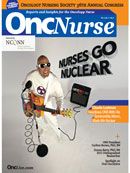You Don't Know What You're Missing: Why Nursing Conferences Remain Relevant
It's understandable that some nurses are unable to go to nursing conferences, but what about all of the other nurses who can go, but choose to not attend?
Attendance at national nursing conferences has decreased in recent years, and this drop-off has been attributed to the high cost of travel, reduced (or eliminated) budgets for nursing education, and the emergence of alternative ways to update knowledge (eg, online programs). It’s understandable that some nurses are unable to go to nursing conferences, but what about all of the other nurses who can go, but choose to not attend?
For these nurses, who have the support of their employers, it may be “too hard” to be away from family or work, or it may be “too far” to go to learn something new, or it may simply be “too complicated” to attend a conference. So, why should nurses attend nursing conferences?
The most compelling reason, in my opinion, is that nursing conferences offer something that is only available at nursing conferences: human interaction. Nothing can take the place of networking with colleagues, participating in a live question-and- answer session following an educational program, or learning about new drugs and products firsthand in the exhibit area. Nursing conferences foster feelings of camaraderie and offer multiple opportunities to interact and connect with other attendees. These interactions may be fleeting or have long-lasting effects; many enduring friendships have sprouted and been renewed at nursing conferences.
Nursing conferences are also highly rejuvenating. It’s a great feeling to head for home feeling inspired and armed with new information or insight, which can be brought back to the workplace and shared with others. Most conferences have multiple tracks or offer concurrent sessions on different topics; this allows nurses to customize their educational experience and tailor it to their individual needs. Conferences also help identify clinical resources, programs, and people who can be contacted in the future to help solve problems or answer patient care questions.
The conference forum is also an easy way to earn continuing nursing education contact hours, which are required for state RN licensure renewal. The live educational sessions offer a more interesting and rewarding experience than print or online CE activities.
As I mentioned earlier, conference exhibit areas can also be a valuable resource. With vendors gathered all in one place, exhibit halls make it easy to learn a lot in a short amount of time. In addition to offering promotional/marketing information about their drugs and products, vendors also offer medical information. This may be one of the most underutilized features of the exhibit hall. I jot down my non-urgent clinical questions throughout the year and ask my questions at the annual conferences that I attend. Further, the medical affairs department of drug and product manufacturers will often disseminate postmarketing information to conference attendees that is not in the package/product insert or otherwise readily available.
It would be naïve to expect that every nurse can or should attend a conference. After all, some nurses are needed to stay behind and provide patient care while others go to the conference. Those unable to attend should take advantage of technological advances offering “virtual attendance,” that is, viewing archived conference sessions online. Gone are the days of purchasing audiotapes from the conference and hearing a presentation; now, the presentation can be viewed as well as listened to. Viewing an archived presentation is not quite like being there in person, but it is a reasonable alternative.
Watch OncLive TV or view ONS Congress Coverage
Also very helpful are the nursing conference recaps that many websites and publications, including OncLive.com and OncLive Nursing, provide. For instance I enjoy viewing OncLive TV on OncLive.com to watch the speakers’ interviews and learn additional information that can only be gained by listening to the speakers’ points of view. OncLive.com also covers other conferences, such as those designed for oncologists and hematologists. Online coverage and reporting of these meetings allows nurses like me, who are unable to attend medical conferences in person, to view important new information that is critical to the care of our patients.
If you have the opportunity to attend a nursing conference, take it. If the opportunity doesn’t arise, seek out other ways to update your knowledge, such as viewing online conference coverage and archived presentations. It’s now easier than ever to attend a nursing conference, and take it from me, you don’t know what you’re missing.
Lisa Schulmeister, RN, MN, APRN-BC, OCN®, FAAN, is an oncology nursing consultant and adjunct assistant professor of nursing at Louisiana State Health Sciences Center in New Orleans, LA, and the editor-in-chief of OncLive Nursing.

Innovative Program Reduces Nurse Turnover and Fosters Development
Published: September 12th 2024 | Updated: September 12th 2024The US Oncology Network (The Network) has developed one of the most comprehensive programs in the nation to support the professional development and retention of new oncology nurses.


